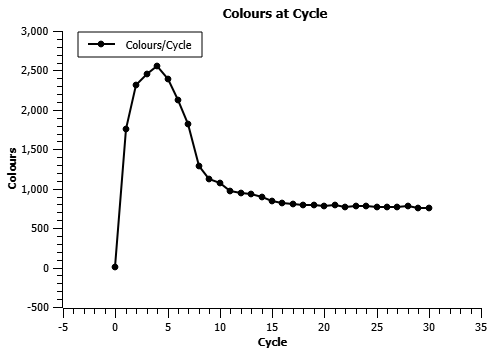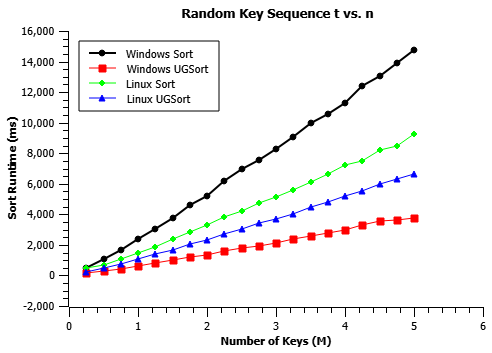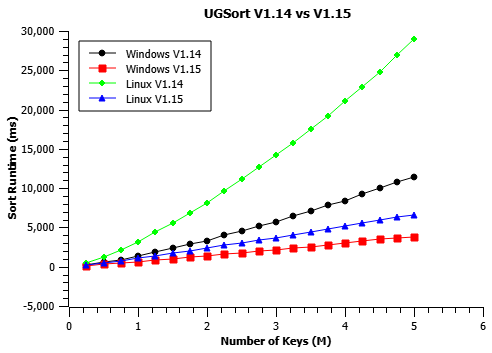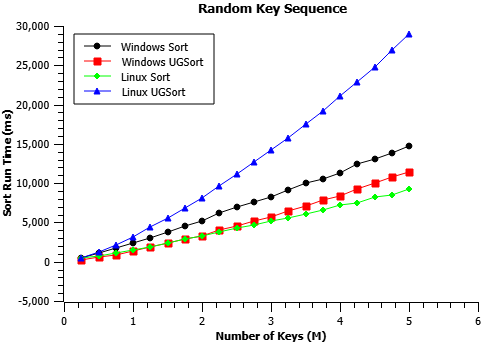 Ian J. Tree -
"Cogito ergo sum"
Ian J. Tree -
"Cogito ergo sum"
 Ian J. Tree -
"Cogito ergo sum"
Ian J. Tree -
"Cogito ergo sum"
 In the above plot the old UGSort and Native Sort plots for 1 to 5 million keys were measured at the time and then projected for the 6 - 10 million
keys data points. The old Windows environment used OS Build: 22621.1992 and the new uses OS Build: 26200.7019.
In the above plot the old UGSort and Native Sort plots for 1 to 5 million keys were measured at the time and then projected for the 6 - 10 million
keys data points. The old Windows environment used OS Build: 22621.1992 and the new uses OS Build: 26200.7019.
 Base GIF image |
|
 JPEG image after 1 cycle |
|
 JPEG image after 10 cycles |
|
 JPEG image after 20 cycles |
|
 JPEG image after 30 cycles |
 The plot above shows the comparative performance of UGSort against the native sort.
The plot above shows the comparative performance of UGSort against the native sort.
 The plot above shows the performance comparison between v1.14 (linear search) and
v1.15 (binary search).
The plot above shows the performance comparison between v1.14 (linear search) and
v1.15 (binary search).
 The plot above shows the comparative performance of UGSort against the native sort.
The plot above shows the comparative performance of UGSort against the native sort.